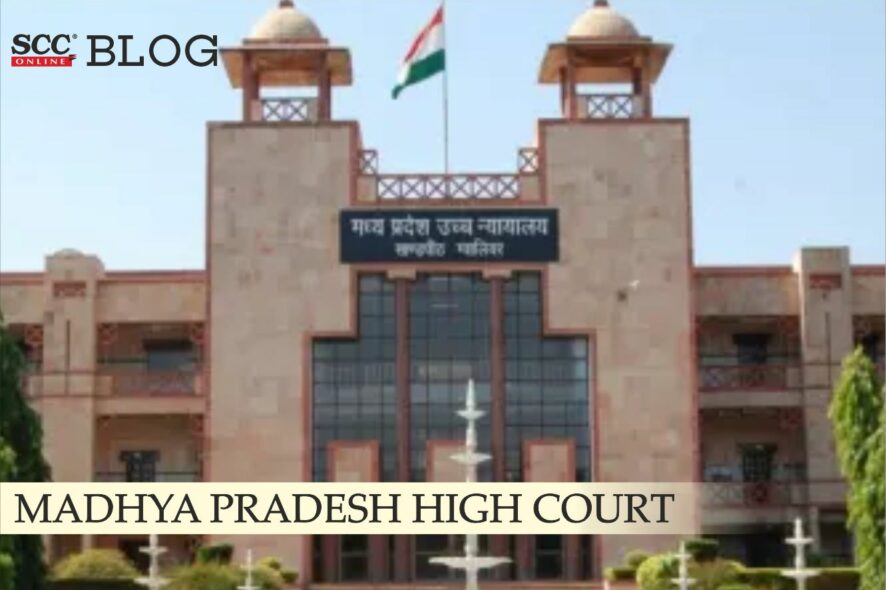Madhya Pradesh High Court: The Division Bench of Sujoy Paul and Prakash Chandra Gupta, JJ., disposed of a petition reserving liberty to the petitioner to avail alternative remedy of appeal.
Petitioner had filed Writ Petition challenging impugned order which was an interlocutory order passed by the Debts Recovery Tribunal, Jabalpur, whereby the interim relief was denied to the Petitioner as he had failed to establish violation of the SARFAESI Act, 2002, in the proceedings initiated by the Respondent Bank under the Act.
Counsel for the petitioner submitted that the present writ petition was properly drafted and pregnant with the necessary specific pleadings. He further submitted that the DRT came to hold that under the provisions of SARFAESI Act, 2002 no interim relief was due to the petitioner. Hence, the only remedy to the petitioner is of filing of present petition.
Counsel for the respondent/Bank placed reliance on the recent order of Supreme Court wherein the Supreme Court had deprecated the practice of entertaining the writ petition despite availability of alternative remedy.
The Court reiterated Section 18(1) of the SARFAESI Act, 2002 and noted that the appellate provision made it clear that the legislature in its wisdom has used the words “any order” made by the Debts Recovery Tribunal against which the appeal lies. The Court was of the opinion that expression “any order” was wide enough to include an interlocutory order drawing support from various decisions given by the High Courts of India in this regard.
The Court considering the backdrop of the present case stated that there was nothing which made it obligatory for the Court to entertain this writ petition when efficacious alternative remedy is available to the petitioner. The Court considered the case of Kotak Mahindra Bank Ltd. v. Dilip Bhosale, Special Leave to Appeal (C) No.(s). 13241-13242/2019, decided on May 11, 2022 relied on by the Counsel for the respondent/Bank and reiterated the relevant part which was:
“Before parting with the order, we would like to observe that this Court is consistent of the view and can be noticed from the judgment in United Bank of India Vs. Satyawati Tandon (2010) 8 SCC 110, that when a remedy under the statute is available and in the instant case which indeed was availed by the respondent/borrower, filing of a writ petition under Article 226 of the Constitution of India is to be discouraged by the High Court.”
The interference was declined in view of availability of alternative remedy.
[Devendra Kumar Rai v. State Bank of India, 2022 SCC OnLine MP 1295, decided on June 13, 2022]
For petitioner: Mr N.S. Ruprah
For respondent/Bank: Mr Prabhanshu Shukla
*Suchita Shukla, Editorial Assistant has reported this brief.






